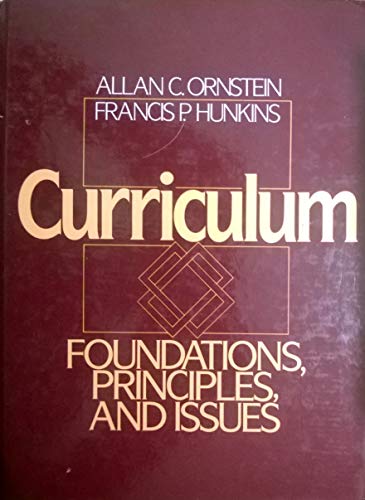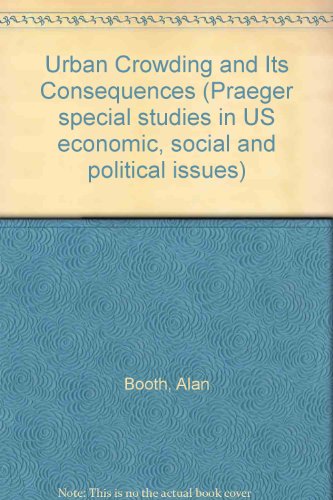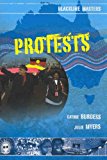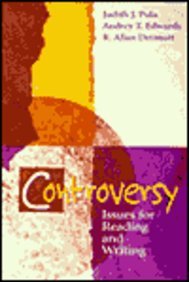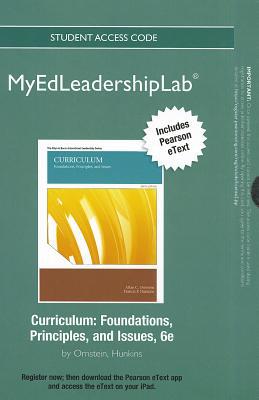Curriculum--foundations, principles, and issues
Ornstein, Allan C
The fourth edition of Curriculum: Foundations, Principles, and Issues, provides both the student and the professor of curriculum with a comprehensive treatment of the field. As in previous editions, it provides solid coverage of the philosophical, historical, psychological, and social foundations of curriculum. Recent research and thinking in these areas is included, providing new information on, for example: the reconceptualists, learning styles and developmental psychology, American modal personality, charter schools and privatizations, and Goals 2000. It places curriculum within the dynamic social context, both present and emerging, and presents a balanced treatment of the various issues confronting the field.
Features
- Chapters 12 and 13 are combined into an all new chapter detailing the latest issues and trends within curriculum, including the politics and sociology of education, moral and spiritual education, standouts and high stakes testing, and technology.
- Increased coverage of brain research, Piaget, Vygotsky, multiple intelligence theory, and Ernstvnetivism (Ch. 4).
- Increased coverage of action research (Ch. 11).
- “Curriculum Tips give practical meaning to the research and insights into the curriculum process.
- “Focusing Questions orient the reader and set the stage for the main ideas in the chapter.
- “Overview Tables provide summaries of the major concepts and principles conveyed in the chapter.
“Students appreciate the text because of its readability and the graphs and charts are excellent organizers for the reader..,
Dr. Robin Largue, University of West Florida
“Curriculum: Foundations, Principles and Issues is divided into chapters that can be used as the basis for weekly class readings, focusing questions, and discussions topics. It provides the kind of in depth view of curriculum that future administrators need to understand, especially with respect to the philosophical, social, historical and psychological dimensions of the curriculum.
Dr. Joyce Lee, California State University, Florida
Author bios:
Dr. Ornstein is a full professor at St. John's University (NY), former Fulbright Hayes Scholar and screening committee member; and author of 45 books and 400 articles related to curriculum, instruction, teaching, and education foundations. Among his most recent books are; Foundations of Education, 8th ed. (Houghton Mifflin, 2003), Pushing the Envelope (Merrill, 2003), and Teaching and Schooling in America: Pre and Post 9-11 (Allyn and Bacon, 2003).
Francis P. Hunkins, Ph.D. is Professor Emeritus of Education in the College of Education at the University of Washington, Seattle. During his tenure at the College of Education, he served as chairman of the Department of Curriculum and Instruction. He also has worked with school districts around the country and continues to be active in consulting with various educational organizations. He is a past President of the American Association of Teaching and Curriculum. Dr. Hunkins has written twenty-one books dealing with curriculum world geography, questioning and questioning strategies, and social studies education. He is the author of over eighty articles dealing with various aspects of education.
Curriculum Planning, Curriculum Evaluation
| Name in long format: | Curriculum--foundations, principles, and issues |
|---|---|
| ISBN-10: | 0131957775 |
| ISBN-13: | 9780131957770 |
| Book pages: | 348 |
| Book language: | en |
| Binding: | Hardcover |
| Publisher: | Prentice Hall |
| Dimensions: | Weight: 1.7306287567 Pounds |

